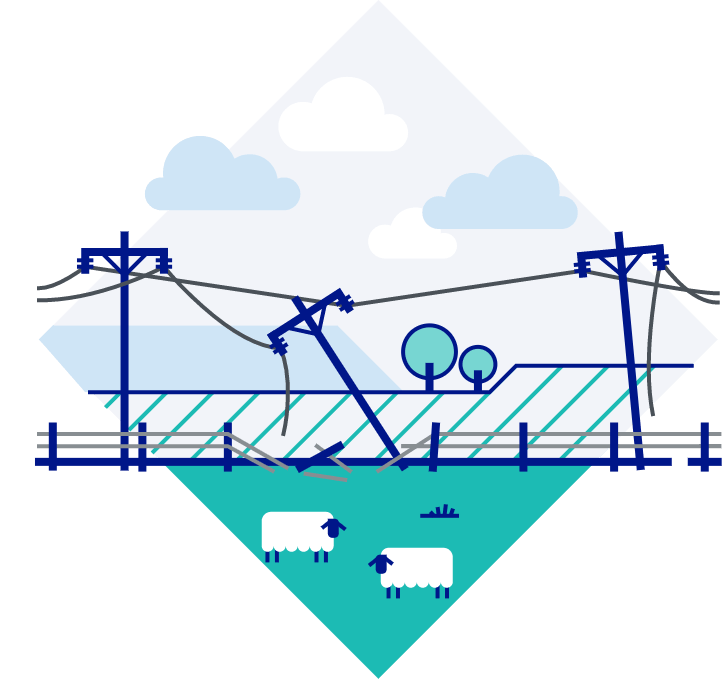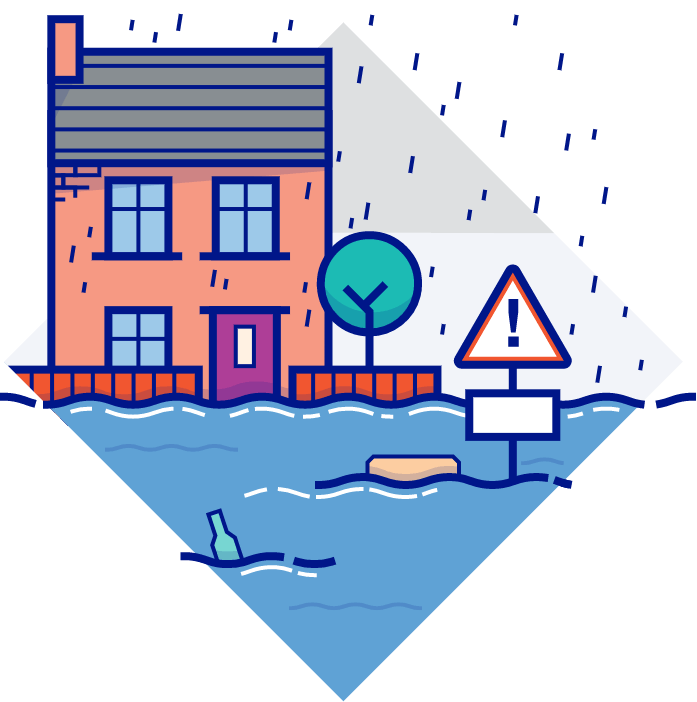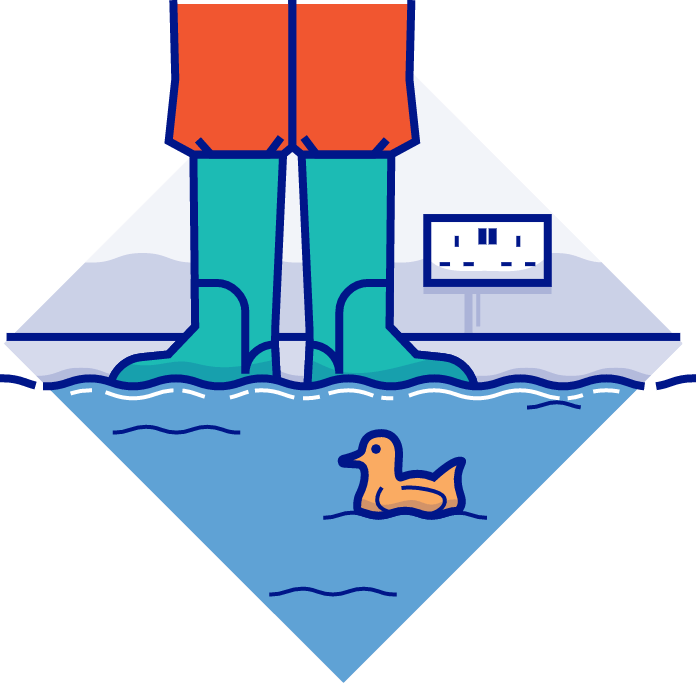Safety first
The safety of you, your family and your loved ones is our first priority.
Electricity is extremely dangerous, and you should never take any risks. Here’s some information on how to ensure you stay protected during a power cut.
Fallen power lines
- Fallen power lines can be hazardous, so keep your distance. Always assume that a fallen overhead line is live and call us immediately to report it.
- If a road or path is blocked, call the police on 999. It's an emergency, and they'll respond immediately.
- Be careful when clearing fallen branches or debris from your property after a storm or severe weather, as there could be hidden dangers. Always look up and never handle anything that may be touching overhead lines.
Carbon monoxide
Carbon monoxide is an invisible and odourless gas that can kill.
Any appliance powered by carbon-based fuels, including gas, coal, oil, diesel, petrol and wood, can release carbon monoxide, known as CO.
To stay safe, never use a portable generator or barbeque indoors during a power cut or planned interruption to your supply.
You can learn more about the dangers of CO and advice on gas safety on the About CO section of The Carbon Monoxide and Gas Safety Society website.
Flooding
Flooding poses a serious risk to your safety. During a flood and after it, your electrical supply and appliances can be dangerous. If your property is at risk of flooding or has been flooded, here’s what to do:
During a flood
- If flood water is about to enter your property, turn off your electricity supply using the isolator switch or fuse unit*. Only attempt this if it's safe to do so, and never take any unnecessary risks. You can speak to your insurer or a qualified electrician if you need further advice. *Fuse units are located close to your electricity meter. Your meter could be inside your property or outside in a dedicated meter cabinet.
- Never touch any electrical appliances, cables, or equipment while standing in floodwater.
- Please don't touch any appliances, cables, or equipment that has been touched by floodwater, as they may not be safe.
After a flood
- Stay away from all equipment if your meter has been underwater. Instead, call us as soon as you can, and we’ll arrange an emergency visit.
- If the power is off (or partially out), check the fuse box if it's safe to do so. You can see if any of the fuses have operated. If they have, call your insurer or qualified electrician who can help you. Don’t touch the fuses yourself.
- If your fuses or trip switches haven’t operated and your electricity supply is off, contact us on our emergency number straight away.
You can find more information on flooding and extreme weather by visiting the Environment Agency website.
Flooding and your power supply
A useful information pack with help and advice for you, make sure to print a copy and keep it handy just in case.



